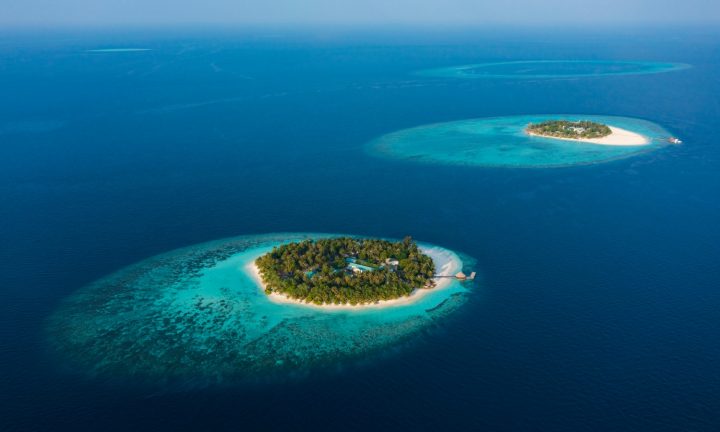
Unlocking potential of Maldives: Role of private investment in transforming uninhabited islands
The Maldives is renowned for its breathtaking resorts and luxury tourism offerings, but it’s worth remembering that many of these iconic destinations started as uninhabited islands, devoid of infrastructure, facilities, or revenue generation. Hundreds of islands across the Maldives remain in this same undeveloped state today, contributing little to nothing the state or public in terms of revenue. These islands represent untapped potential that could transform into revenue-generating assets, much like the resorts that now drive the nation’s economy.
From Untouched Islands to a Billion Dollar Industry
Public funds did not develop the current resorts, which generate billions of dollars annually for the Maldives’ economy. Private investors took the financial risk, pouring resources into creating the world-class tourism assets we see today. They built the infrastructure, developed the services, and created employment opportunities that have turned the Maldives into a global tourism powerhouse.
Without this investment, these islands would likely still be unproductive, contributing nothing to the state coffers. Instead, through a range of taxes and fees, the private sector has transformed these islands into a sustainable revenue source for the government.
- Resort rent
- TGST (Tourism Goods and Services Tax)
- GST (Goods and Services Tax)
- Green tax
- Import duties
- Pension contributions
- Income tax
- Withholding tax (WHT)
- Visa fees and quota fees
- License fees
These contributions collectively fund a significant portion of the state’s revenue, enabling the government to provide services and infrastructure for the public’s benefit.
It’s a well-established fact that government-led efforts to develop and operate resorts in the Maldives have consistently fallen short of expectations. Despite receiving prime opportunities and significant resources, state-owned enterprises (SOEs) such as MTDC, STO, MACL, and IASL have consistently failed to deliver successful resort operations.
On the other hand, private investors have demonstrated their capability to transform barren islands into thriving resorts, generating billions in revenue and establishing the Maldives as a global tourism leader.
It’s purely these SOEs led by political appointees who have no or very little experience in the field, and they fuelled again with corruption. This is why SOEs continuously keep failing in this field.
The Public’s Right to Tax Revenue
The taxes paid by investors are not mere contributions—they are the public’s rightful share of the revenue generated by these private-sector initiatives. We intend to use this money to fund essential services like education, healthcare, infrastructure, and social welfare. It is the government’s responsibility to allocate these funds effectively to improve the well-being of Maldivian citizens.
Investors, on the other hand, have a clear role: to develop assets, generate economic activity, and ensure returns on their investments. Investors are not required to directly finance public services or infrastructure. Although we welcome corporate social responsibility initiatives, the government bears the primary responsibility for providing education, healthcare, harbours, and roads.
The Misplaced Expectation on Investors
There is a growing misconception that private investors should use their profits to directly fund public projects. This expectation ignores the economic structure in which the government collects taxes to serve the public interest. Shifting this responsibility to investors undermines the purpose of taxation and creates an unsustainable reliance on the private sector for public services.
Investors are already fulfilling their obligations by paying taxes and fees. Their focus must remain on ensuring the profitability and sustainability of their ventures, which in turn drives further economic growth and job creation. Asking them to do more diverts attention and resources away from their primary role, which could ultimately harm the broader economy.
The Path Forward
The Maldives has a unique opportunity to unlock the potential of its remaining uninhabited islands by encouraging private investment. The right policies and incentives can transform these islands into valuable assets, thereby contributing even more to the nation’s economy. However, the government must use the revenue from these investments wisely and transparently.
The state must prioritise spending tax revenue on public goods, such as:
- Improved healthcare facilities
- Quality education for all
- robust infrastructure
- Affordable housing and social welfare programs
By doing so, the government can fulfil its mandate to improve the quality of life for Maldivians while allowing investors to focus on creating and maintaining the assets that drive economic growth.
The transformation of uninhabited islands into revenue-generating resorts is a testament to the vision and risk-taking of private investors. These investments have laid the foundation for the Maldives’ thriving tourism industry, generating billions in revenue and creating countless opportunities.
However, the Government must use the taxes and fees generate to meet their needs. It is not the responsibility of investors to directly fund public services or infrastructure.
Recognising and respecting this distinction allows the Maldives to maintain its position as a global tourism leader, while also ensuring equitable benefits for its citizens from the wealth this remarkable industry generates.






